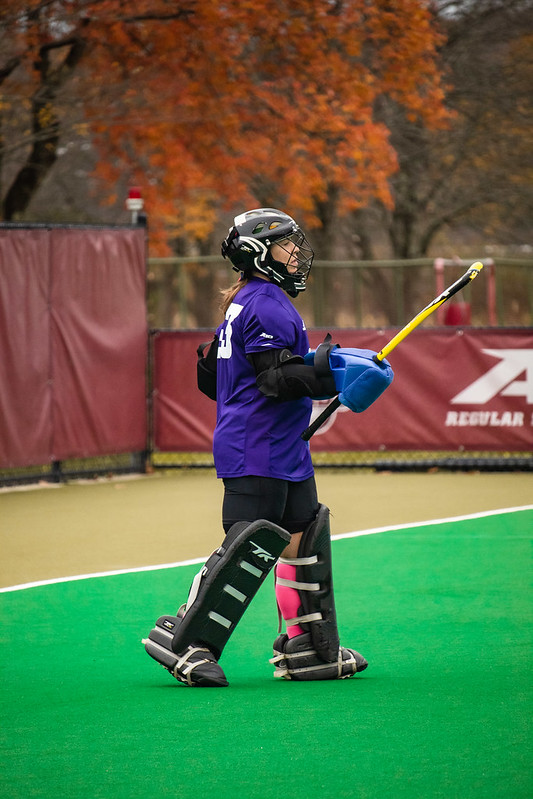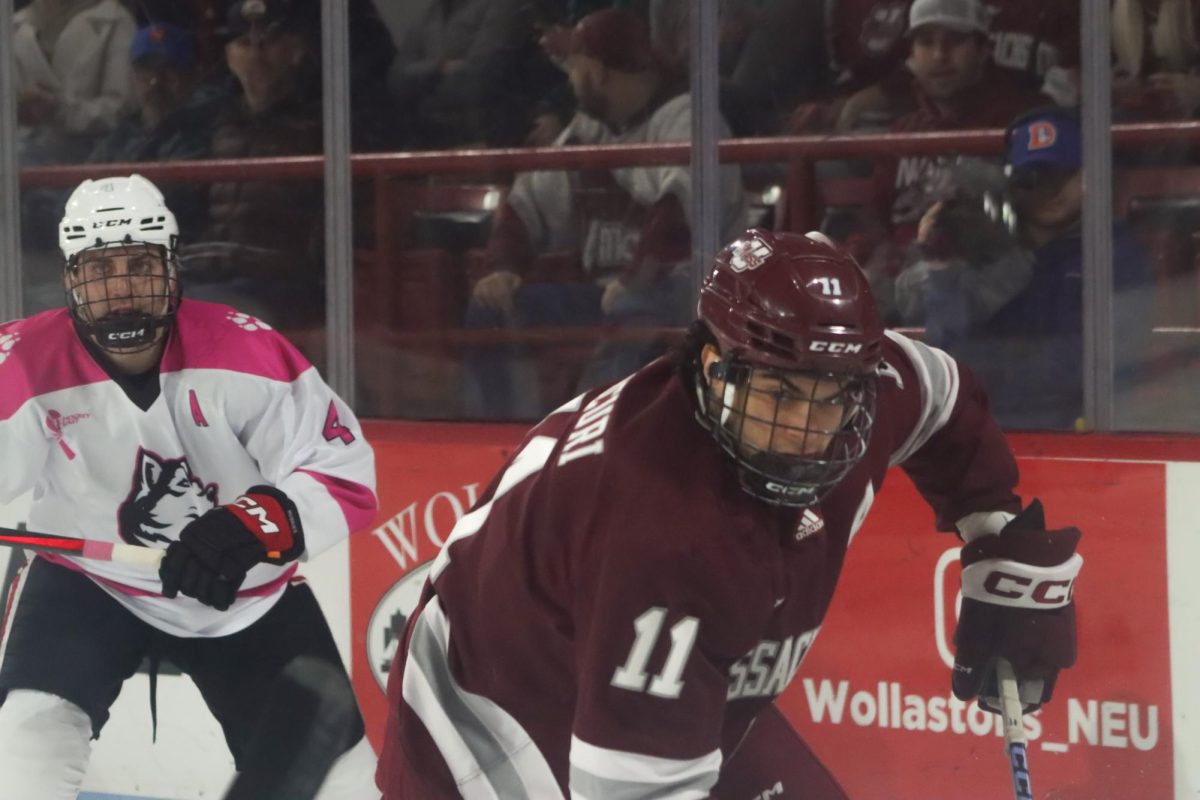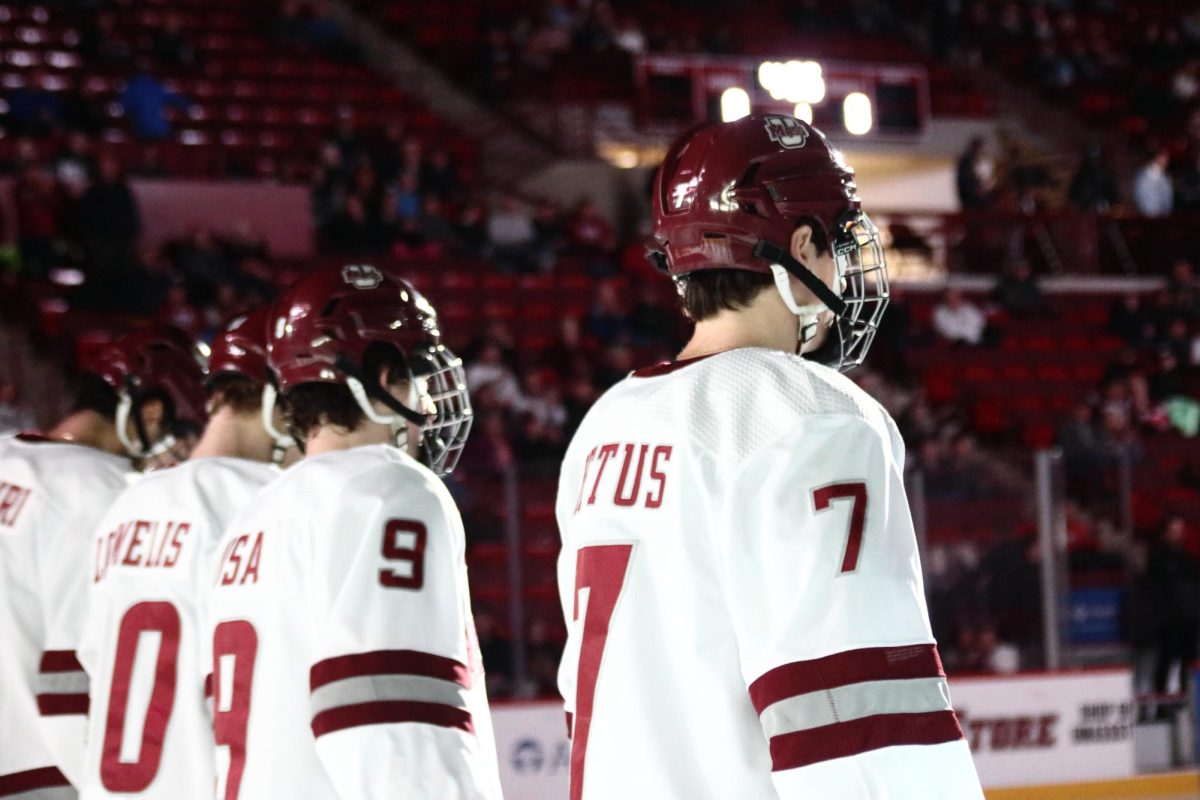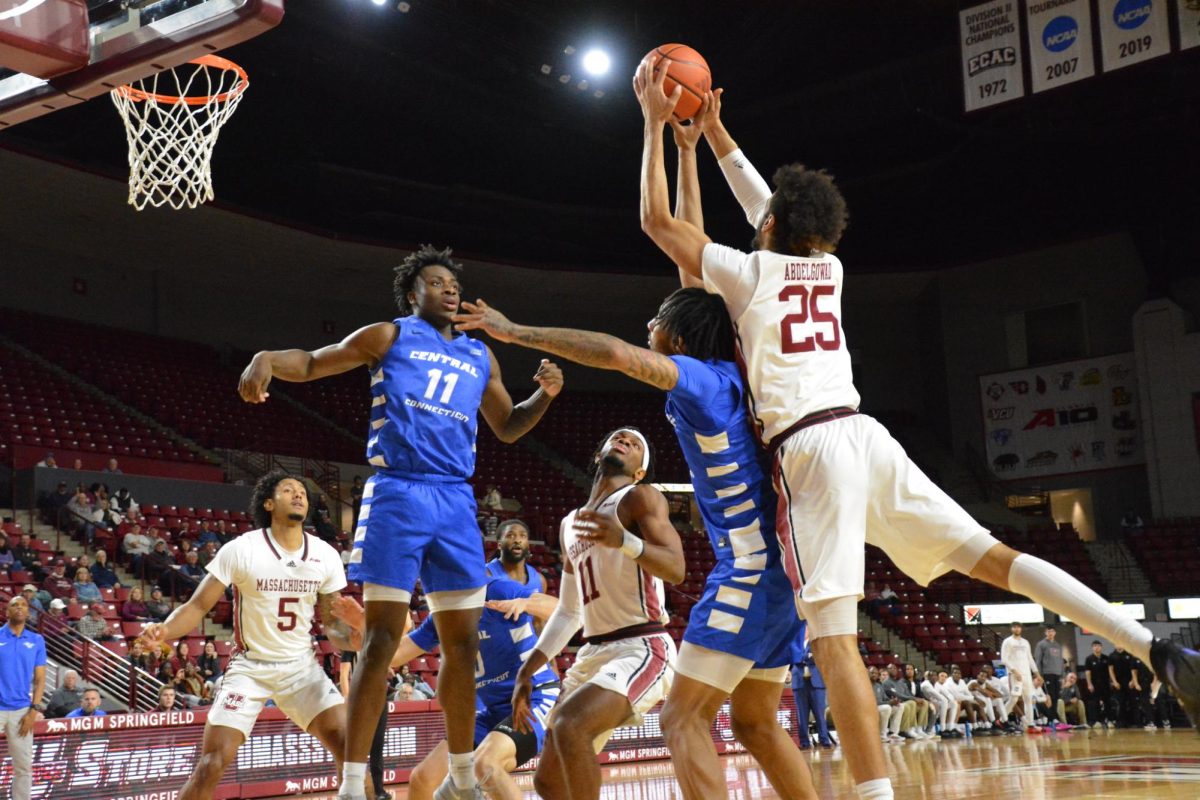Whenever Marlise van Tonder is on a field hockey pitch, she’s convinced that she’s the best player out there. It doesn’t matter whether she is playing for UMass, University of the Pacific or the South African National Team, all of which she’s played for in the last year. It’s not arrogance as much as it is a mindset. In order to be the best, she has to believe she is the best.
Once she leaves the field, though, she’s much more objective, which has served her well on the rollercoaster ride of her field hockey career.
Van Tonder’s college career began at the University of the Pacific in Stockton, California. She loved everything about it, from the field hockey program to the mechanical engineering program where she was a top student, earning a spot on the National Field Hockey Coaches Association National Academic Squad twice in two years. She was more than happy to finish her collegiate career playing and studying at Pacific.
Then, seemingly out of the blue, the program was cut. It was a turn that blindsided the always-confident van Tonder.
“It was honestly like someone had taken my heart out and ripped it to shreds and set the shreds on fire,” van Tonder said. “I absolutely loved my team at Pacific, and we were such a close family. I didn’t want to think it was real, what they were telling me.”
So she didn’t, for about a week anyway. After the meeting where the athletic director gave the team the fateful news, a school compliance officer presented members of the program with the option of transferring and being immediately eligible to play. The officer told them to write their name on a whiteboard in her office if they were interested.
As more and more of her teammates’ names started appearing on the board, the situation that van Tonder hoped was just a nightmare was becoming a painful reality. Finally she wrote her name down.
When it came time to thinking about where she wanted to play next, van Tonder had no ideas. She never envisioned herself playing college field hockey in the US, in the first place, until the chance actually presented itself.
“The opportunity to play in the states only came in my second year of studies in South Africa. Up until that point, I had never considered playing in the US,” she said. “I played for a U21 team and one of my teammates was playing for the University of the Pacific at that stage, and they needed a goalkeeper, so the coach asked her, ‘Do you know anyone that would be interested?’ So, she gave him my name and he phoned me over the equivalent of spring break, and things kind of went up from there.”
Pacific was the first and last school van Tonder talked to, and now that playing there was no longer an option, she was at a crossroads. It was the lowest of lows in a field hockey life which until that point had seen the highest of highs.
* * *
Marlise van Tonder’s field hockey life began fifteen years ago and more than 8,000 miles away from UMass.
“I started playing goalkeeper when I was twelve,” van Tonder said. “We had field hockey at our primary school and when I was seven, they put up a lot of posters about the field hockey team, but I was too young to play. Having someone tell me you’re not allowed to do something or you can’t do something, [it] made me want to play it even more.”
But even as she grew old enough to play, her favorite sport remained softball. She had been playing softball long before ever stepping on a field hockey pitch. That was the sport where she dreamed of becoming a professional.
That started to change when she applied for the provincial team while in high school. In South Africa, there is an A, B and C team. The A team is the best of the best, filled with players who one day hope to play in the Hockey World Cup and Olympics. The B and C teams, while still highly competitive, are devoted to newer players or those with a lesser skill level. Everyone tries out together based on age group, and after the tryout there is a ceremony where the team is announced. Marlise was expecting to be on the C team.
“They always start with the C team, then the B team, then the A team,” she said. “So, when the C team keeper was announced, I was like, ‘Woah? What? This is weird.’ Then the B team keeper was announced, and I was smiling from ear to ear. I was so elated.”
During the first summer after van Tonder made the A team, she watched the Olympics and saw legends like Dirkie Chamberlain and Pietie Coetzee-Turner race up and down the pitch, competing against the world’s best all while donning the South African green and yellow. A few months after the games, van Tonder’s school received a special visitor.
“In 2012, when Dirkie Chamberlain came to speak at our school, it was just such an amazing experience that she was telling us about,” she said. “That is kind of when I decided, I want to represent my country.”
So she shifted her focus. Softball was out, field hockey was in. She wanted to be a professional and she wanted to wear the South African colors.
From that point on, her elite play started getting recognized, as she earned Goaltender of the Year and Player of the Year honors in 2015. After that season, she was selected to the national team. She had achieved one of her goals; she would represent her country.
“It was indescribable, it was absolutely amazing,” she said. “Singing the national anthem before the game, you just have goosebumps all over. It is such an amazing opportunity and honor to do that.”
She made her debut in February of 2016 during a series against China and India, five months before enrolling at Pacific. Over the next two-and-a-half years, when school and her collegiate season weren’t in session, she would compete with some of her heroes turned teammates all over the globe, against everything the world had to offer. Playing with the players that she had been watching on TV for years was a surreal experience for van Tonder.
“Growing up watching hockey, I was seeing all these big names like Shelley Russell, Dirkie Chamberlain, Sulette Damons. And there is that moment where you’re like ‘Woah, I’m playing with my idols. Like, I’m playing with the people that I looked up to when I was a kid,’” she said. “It’s such a strange feeling because then your idols become your friends, and you’re like, ‘Never in a million years did I think this would happen,’ so it’s a pretty cool feeling.”
On October 29, 2017, just before van Tonder backstopped a 2-0 Pacific win over Colgate, South Africa defeated Ghana 4-0 in the Hockey African Cup of Nations in Ismailia, Egypt to pave the way for its bid to compete in the 2018 Hockey World Cup. Since the World Cup always takes place in August, van Tonder would be there. It was only fitting that the tournament would take place in London, the same site of the Olympics that had provided her with so much inspiration just a few years prior.
When the World Cup began, South Africa faced off against Germany in the first game. With fireworks shooting up into the sky from the outside of the stadium, the field hockey world watched as Van Tonder and her teammates stormed onto the pitch to belt out the South African national anthem before the contest.
“Running out the pitch and having that and seeing the crowd, that was the biggest crowd I’ve ever been in front of,” van Tonder said. “It was insane! I looked up and was like, ‘Am I at a rugby match? Because this is way too big of a crowd to be at hockey.’ And just being there and competing with the best of the best, it was an indescribable feeling.”
She was on the top of the field hockey world, one of just two NCAA players with the honor to compete for the cup.
* * *
Four months later, van Tonder felt just the opposite: dejection. With no field hockey team to play on, she would have to leave Pacific or go two seasons without playing the sport she loved. When she put her name in the transfer portal, she was contacted by a number of DII and DIII schools. She knew both options, playing for a DII or DIII team or not playing at all, would seriously jeopardize her goal of making the Olympic team.
As spring became summer, nothing had changed. She was leaning towards staying at Pacific and not playing collegiate field hockey. Then she got a phone call from coach Barb Weinberg and the UMass Minutewomen.
Right of the bat, UMass was able to check off the two most important boxes Van Tonder was looking for: a DI program and a strong mechanical engineering program. She heard out their pitch.
On the UMass side of things, the decision to recruit van Tonder was an easy one. Weinberg didn’t have a personal connection, but van Tonder’s resume was enough to get her interest. To get an endorsement, Weinberg reached out to the newest UMass assistant coach, Pietie Coetzee-Turner. Coetzee-Turner, who is the all-time leading scorer in the history of women’s international field hockey with 287 goals and someone who Van Tonder admires, had nothing but praise for her countrywoman.
“I got into contact with Pietie, who at the time we had just hired, and asked if she knew Marlise,” Weinberg recalled. “And she said, ‘Yeah, I know Marlise. I coached her in my provincial team down in South Africa.’ So Pietie had the utmost recommendation about her. Just her character and abilities as a goalkeeper, and we jumped on that right away. Pietie just to me was like, ‘Look, this girl is serious, she wants to play in the Olympics; that is her goal. She is serious about hockey, serious about school, and she would be a great addition to the team.’”
UMass was in, and soon van Tonder would be as well. As she started weighing out all UMass had to offer, the decision was becoming more and more clear. Her goals of the Olympics would stay on track and she’d be able to continue in an area of studies in which she excelled. The deciding factor for Van Tonder was the expertise on the coaching staff.
“I really liked the idea that two of the coaches were goalkeepers,” she said (Weinberg and assistant coach Sarah Mansfield, who played at the University of Iowa and University of Connecticut, respectively). “They were both brilliant goalkeepers when they played, so I thought I could learn a lot from them. Also, having Pietie Coetzee as an assistant coach. She was one of my idols growing up and she coached me last year, and I really enjoyed her coaching style. She was a really good coach. So, the combination of two really good goalkeepers and a coach I really like, plus the engineering being really good. I decided to give it a shot.”
Shortly after talking with Weinberg and Coetzee-Turner, van Tonder made the decision official. She would leave northern California for Amherst to enroll at and play for UMass.
She missed the entire preseason due to a commitment with her national team, but as soon as she joined the Minutewomen, her teammates welcomed her with open arms.
“They were really understanding of my situation and they were really supportive about it,” she said. “I could not have asked for better.”
On the field, van Tonder may not be able to ask for better, either. Since taking over the staring position on Sept. 14, UMass has a 5-2 Atlantic 10 record and is in line to compete in its 13th consecutive conference tournament. It may not be a world championship, but there would certainly still be a lot at stake. Individually, van Tonder has recorded four shutouts and was named the A-10 Defensive Player of the Week for Oct. 21.
Amherst may just be another stop on a field hockey journey which has already taken van Tonder all over the globe. Until that next stop – Tokyo in the summer? Paris in 2024? – van Tonder will be in net for the Minutewomen, trying to carry them back to Atlantic 10 glory.
Tim Sorota can be reached at [email protected] or followed on Twitter @TimSorota.



















